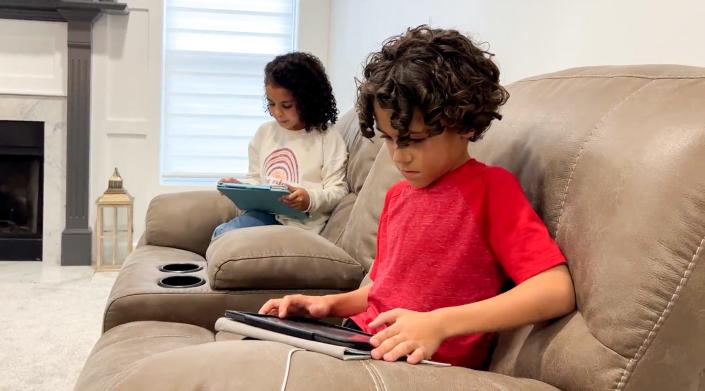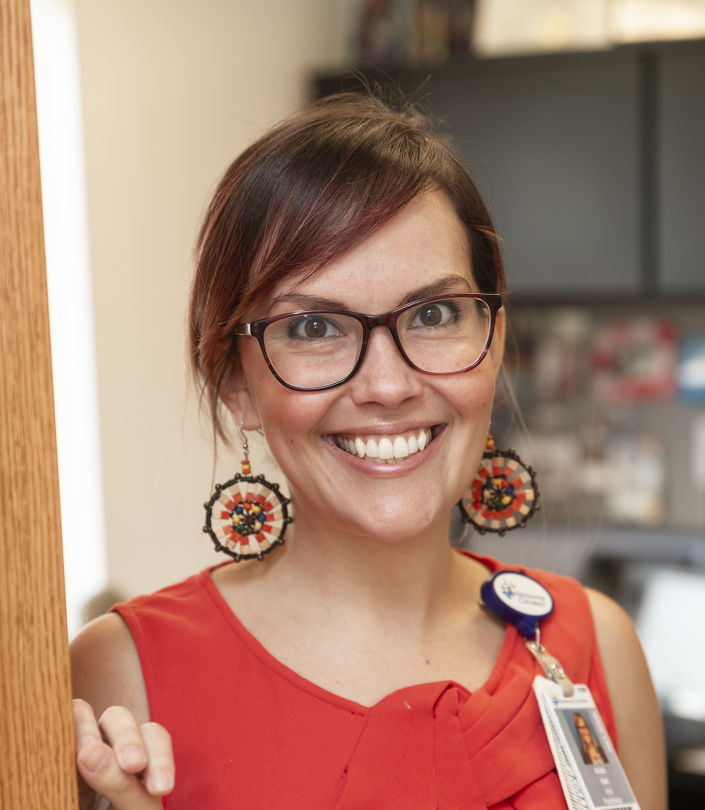
Parents believe children’s mental health affected by social media
The Ricks family makes conversations about emotions and mental health a regular part of their day. As their kids grow and begin to explore social media, the couple is confident that their kids will come to them if they see something concerning online.
Concerns continue to grow about the impact social media use has on the mental health and well-being of children and adolescents. According to a new national survey conducted online by The Harris Poll on behalf of the On Our Sleeves Movement For Children’s Mental Health, half (50%) of parents of children younger than 18 feel their children’s mental health has suffered during the past 12 months because of social media use.
To best understand how social media is impacting their children’s mental health, On Our Sleeves encourages parents and caregivers to sit down and have regular conversations with their children about how using certain social media platforms can make them feel.
Protecting the mental health of children online has also become a conversation outside of the home and on the national level. Between April 2022 and April 2023, platforms like TikTok have introduced new safety measures and some state lawmakers have enacted bills that would limit user access to social media.
Supporting behavioral health: A charity arm of The Players gives $3 million gift to Wolfson Children’s Hospital
New training: Florida leads the nation on innovative student mental health programs
Letters: Emergency rule allows gender-affirming care for trans teens and adults in Florida
This is a positive step, but parents can’t trust that this is enough. Social media has the ability to increase anxiety and depression in children when used inappropriately, as well as potentially open them up to inappropriate sharing, hurtful language, bullying and more.
However, not all social media is bad. It can help in building a sense of community, relationships and self-understanding. Yet, during the past year, the survey shows the number of Americans who say children’s use of social media has a positive influence on their mental health has fallen to just over one-third (35%), a drop from 43% in 2022. In an increasingly digital world, it’s important for parents and caregivers to understand the pros and cons of social media use and work to maintain open communication about what children are experiencing online.
Story continues
We suggest being curious about what children are doing on social media. Take an active role in their social media engagement, instead of simply limiting their exposure, can help them feel comfortable to ask questions, report concerns and seek help when they need it.
It’s also important for parents to encourage open communication at home and model healthy social media behaviors, such as putting their own phones away at the dinner table or while spending time with friends and family. Parents can lead by example and give children the opportunity to practice having open, back-and-forth conversations.
Experts say families who watch social media content together and set clear guidelines for use can help keep the lines of communication open to address potential negative impacts on children’s mood and self-esteem.
Often, what we’re seeing is that if children don’t have these early practices with parents and loved ones, they may go on to struggle as young adults with various life scenarios, such as speaking with their boss, talking to a professor or even communicating with partners and friends.
Unfortunately, fewer parents say they’re comfortable having conversations with their kids about mental health, a drop of 5 percentage points from 91% in 2022 to 86% in 2023. To facilitate these conversations, consistent and open communication is essential. On Our Sleeves provides parents and caregivers with free, easy-to-follow guides and tools to start conversations about what’s happening on social media and strategies on how to set boundaries and keep them safe. Experts recommend:
-
Asking kids to show you their favorite video, channel, or online influencer and following up with open-ended questions.
-
Developing a family social media plan to minimize conflict, support good choices, and address misuse. On Our Sleeves has a template that can be modified to meet each family’s needs.
-
Talking to your kids about how to seek help from a trusted adult if they feel like something unsafe is happening and discussing which parental controls and settings will be in place for social media use and why.
The balance between allowing children to explore social media while avoiding potentially dangerous aspects can be difficult. Through On Our Sleeves, parents can work to build trusting relationships that allow their children to reap the benefits of social media while minimizing the risk of negative outcomes.
For more information and resources to start conversations with children about safely using social media, visit WolfsonChildrens.com/OnOurSleeves.
Andrews
Hoet
Terrie Andrews, Ph.D., is vice president of Baptist Behavioral Health in Jacksonville. Dr. Ariana Hoet, Ph.D., is clinical director of On Our Sleeves and a pediatric psychologist at Nationwide Children’s Hospital in Columbus, Ohio.
This guest column is the opinion of the author(s) and does not necessarily represent the views of the Times-Union. We welcome a diversity of opinions.
This article originally appeared on Florida Times-Union: Learn the risks and benefits of social media use for children









